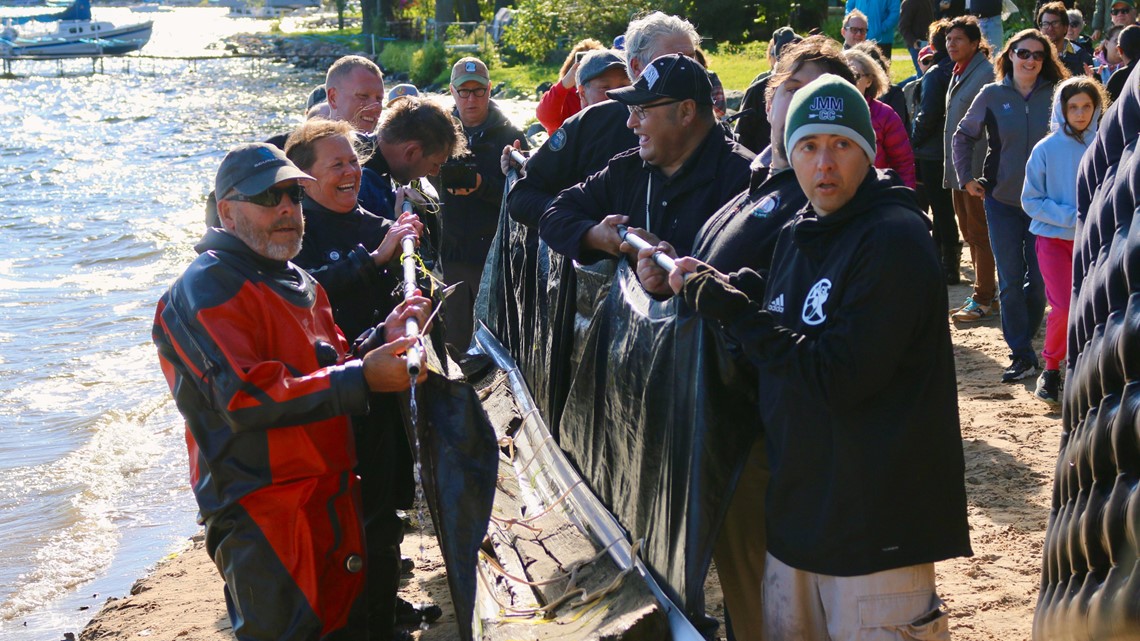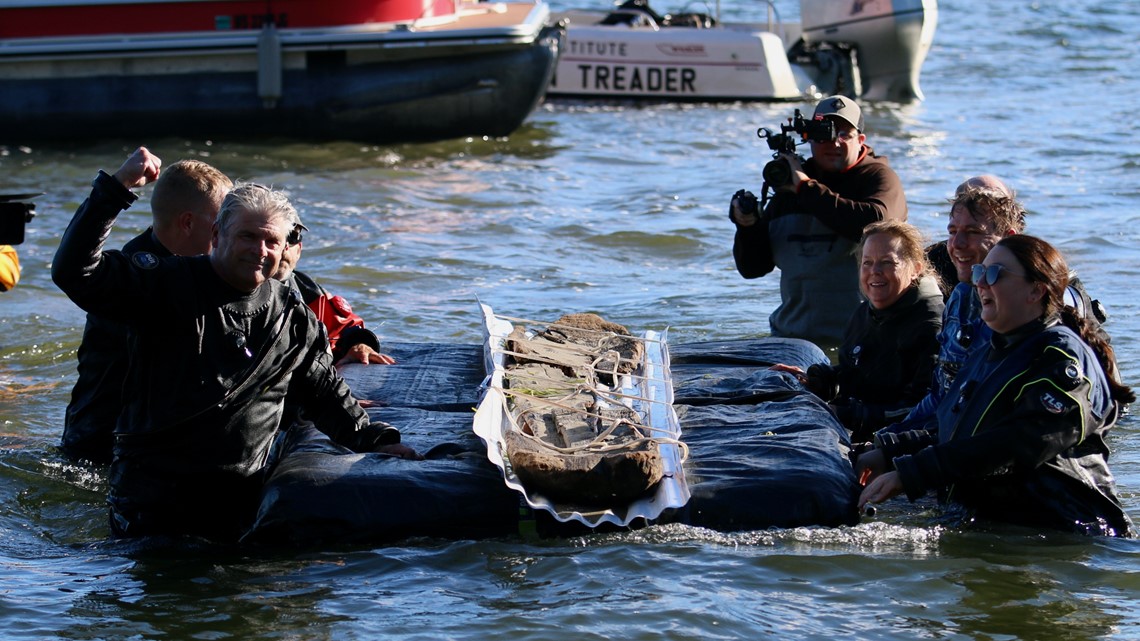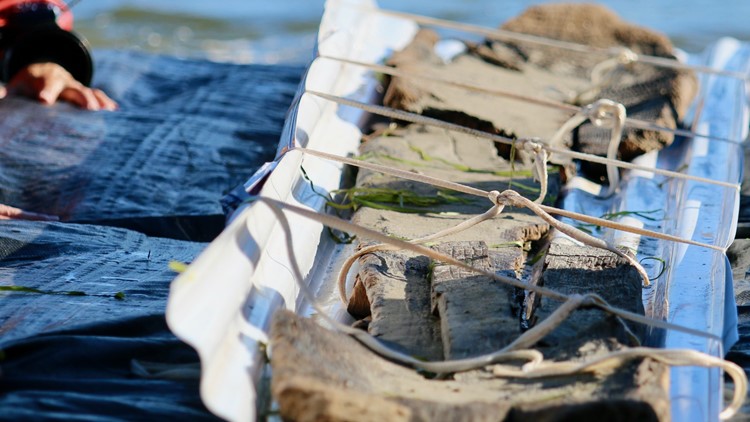MADISON, Wis. — There are old boats, and then... there is THIS.
Researchers pulled a dugout canoe thought to be 3,000-years-old from the waters of Lake Mendota in Madison, Wisconsin Thursday. Carved from a single piece of white oak, the Wisconsin Historical Society (WHS) says the canoe is 14.5 feet long, and carbon dating technology puts the date of its creation at approximately 1,000 B.C.
The canoe was originally discovered at the bottom of Lake Mendota by WHS maritime archaeologist Tamara Thomsen during a recreational dive in May, within 100 yards of a canoe recovered last year that is dated at 1,200 years old.
“Finding an additional historically significant canoe in Lake Mendota is truly incredible and unlocks invaluable research and educational opportunities to explore the technological, cultural, and stylistic changes that occurred in dugout canoe design over 3,000 years,” said WHS archaeologist Dr. James Skibo. “Since it was located within 100 yards of where the first canoe was found at the bottom of a drop-off in the lakebed, the find has prompted us to research fluctuating water levels and ancient shorelines to explore the possibility that the canoes were near what is now submerged village sites.”
Area Native American tribal leaders were on hand when the canoe was pulled from Lake Mendota. They, along with scientists, are hopeful that the discovery shines a light on the story of early native life in Wisconsin and the Great Lakes Region.


“The recovery of this canoe built by our ancestors gives further physical proof that Native people have occupied Teejop (Four Lakes) for millennia, that our ancestral lands are here and we had a developed society of transportation, trade and commerce,” reflected Ho-Chunk Tribal President Marlon WhiteEagle. “Every person that harvested and constructed this caašgegu (white oak) into a canoe put a piece of themselves into it. By preserving this canoe, we are honoring those that came before us."
WHS says the canoe was hand-excavated in preparation for Thursday’s recovery mission, then carefully and securely transported to the State Archive Preservation Facility in Madison to be stored and preserved. Tribal members and WHS staffers will clean the vessel before it is hand-lowered into a large preservation vat that also contains the 1,200-year-old canoe.


Together, both canoes will undergo a two-year preservation process that concludes with freeze-drying to remove any remaining water.
Watch more local news:
Watch the latest local news from the Twin Cities in our YouTube playlist:



